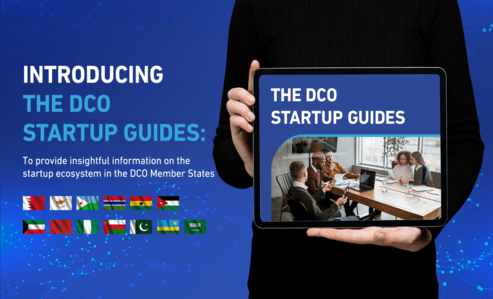Council member
Pakistan
Pakistan is a founding member of the Digital Cooperation Organization.
Its participation was announced by the Ministry of Foreign Affairs, which oversees multilateral cooperation on issues relating to the digital economy.
The Government of Pakistan has long viewed its domestic IT sector as a vital component of its industrial strategy. It was identified as one of the key levers for economic growth in the ‘Digital Pakistan Policy’ and in the broader ‘Pakistan Vision 2025’, resulting in major investments in the country’s digital ecosystem. Subsequent cross-government projects and initiatives spanning R&D, technical education, infrastructure development, regulatory reform, and international marketing have helped to establish the country as a technology hub, with an advanced workforce and rapidly growing start-up community.
Key Achievements
- In 2014, the Government of Pakistan unveiled ‘Pakistan Vision 2025’, a blueprint for developing the country’s economy.
- In 2018, the Ministry of IT and Telecommunications launched the ‘Digital Pakistan Policy’.
- In 2018, Alibaba acquired Pakistan-based Daraz for $194m.
- In 2019, Pakistan’s technical training institutions produced 20,000 IT and engineering graduates.
- In 2021, Pakistan’s Ministry of Information Technology (MOITT) published a revised draft for consultation on the Personal Data Protection Bill.
- In 2021, Pakistan’s SadaPay was projected to be the fastest-growing mobile wallet in the world by 2025.
- In 2021, funding for Pakistani startups reached $300m.
- In 2022, Bazaar, a Pakistani digital retail start-up raised $70m in Series B funding.
- In 2022, the Federal Cabinet approved Pakistan’s first National Cloud Policy, which included collaborations with Amazon and Google to provide large-scale cloud services.
The holistic policy approach put forward in ‘Pakistan Vision 2025’ sought to address infrastructure deficiencies that had exacerbated a digital divide between citizens.
With mobile services becoming the primary channel for citizens to access public and private services, entities including the Pakistan Telecommunication Authority (PTA) and the Ministry of Information Technology and Telecommunication (MoITT) collaborated on projects to increase access to high-quality connectivity and digital services.
Meanwhile, digital skills training leveraged the country’s demographics. With over 60% of its population aged 15-29, young students have been channeled through its many prestigious technical schools, academies, and universities. Over 20,000 IT graduates and engineers now move into the workforce each year, many of whom take up jobs in one of the 2000+ IT companies located in the country.
Policymakers also stepped in to foster an internationally competitive business environment. Incentives to bolster growth include 100% equity ownership, 100% repatriation of capital/dividends, tax exemption on IT & ITeS export revenues, tax exemptions to startups and subsidized Software Technology Parks. New regulations have also been implemented to promote the digital transformation of key sectors such as financial services. These have included the Electronic Money Institution License and The Raast Instant Payment System.
Access to capital, previously cited as a major drag on Pakistan’s start-up success, has also been addressed. A fast-growing ecosystem of investors such as Indus Valley Capital have emerged, offering funding and practical advice on scaling internationally. Over $350m in VC funding was raised by Pakistani start-ups in 2021, the majority of this went to e-commerce companies who have benefited from exploding mobile penetration rates and 4g infrastructure. This has led to increasing success in related industries such as fintech, transport and logistics, with most of the deals taking place in accelerator, pre-seed, and seed stages.
Consequently, it is no surprise that major international investors and multi-national tech firms are eyeing the large growth potential in Pakistan. Alibaba’s move into the market has underlined the scale of the retail opportunity, while Sequoia’s recent investment in fintech startup Dbank was a clear sign of the white space available for digital services.








